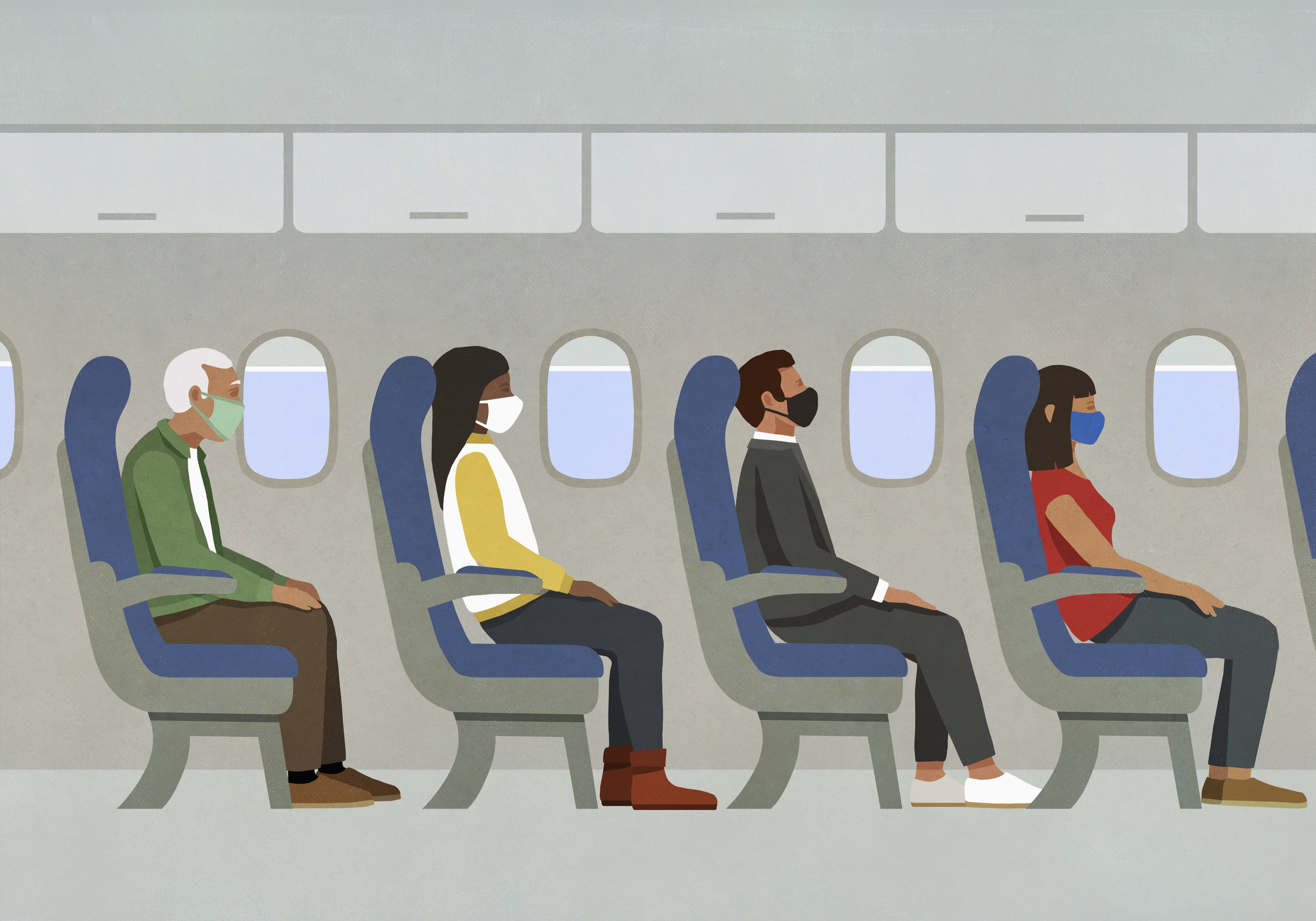Millions of people are now vaccinated, boosted and newly recovered from Covid-19 infections caused by the omicron variant.
They have what some outside the medical community have labeled “super immunity.” And many are ready to see the world again.
Though the term carries an air of invincibility, medical experts disagree about the level and length of protection it confers.
CNBC Travel asked four leading medical authorities to weigh in.
‘You’re very well protected’
Risks of severe illness for vaccinated and recovered people are “low and … unlikely to get lower,” said Dale Fisher, group chief of medicine at Singapore’s National University Health System.
For these people, travel risks are now more about inconvenience than health, he said. Immunized travelers can still get sick during their trips, he said, or have their trips canceled upon testing positive for a pre-flight test.
For the vast majority of people, it’ll just be a very minor illness, if it’s symptomatic at all.Prof. Dale FisherProfessor/Senior Consultant, Infectious Disease, National University Hospital
Fisher said traveling isn’t the Covid risk that it once was, because of how prevalent the omicron variant is today, he said.
“There’s nothing magical about travel; you’re not more likely to get [Covid] because you travel unless you’re going from a very low endemic area to a very high endemic area,” he said. But “there’s not many low endemic areas left in the world.”
Some argue that vaccinations plus recovery provide more protection, Fisher said. However, he added, “you’re very well protected after two doses” of a vaccine, too.
“You’re at risk of getting Covid, wherever you go, for the rest of your life,” he said. “But really, for the vast majority of people, it’ll just be a very minor illness, if it’s symptomatic at all.”
‘This virus is very wily’
People shouldn’t let their guards down just yet, said Dr. Patrice Harris, former president of the American Medical Association and CEO of the at-home medical testing company eMed.
“We are seeing hospitalizations reduced, but listen, we are still seeing 2,400 deaths per day in this country,” she said during an interview with CNBC Travel last week. “We are not at the end of this pandemic yet.”
That doesn’t mean she discourages travel — Harris said she’s planning two trips to Europe this year. But she does recommend that people rely on “tried-and-true evidence-based practices,” such as vaccines, testing, masks, ventilation and social distancing.
Harris said people who are immunocompromised, or around others who are, should exercise more caution. Even though she’s vaccinated and boosted, she’s still careful for the sake of her 87-year-old father, she said.
“This virus is very wily, and at every turn of it has fooled us,” she said.
There is always the threat of another variant emerging, plus the risk of developing so-called “long Covid,” even after mild infections, she said.
“We sometimes think: ‘Oh, I’ll get Covid, I’m young, I’m healthy, I’m boosted, so I’ll get over it quickly,'” she said. “But … not everyone will.”
‘You should travel’
People who are generally healthy, have had three doses of a vaccine and recovered from omicron should feel secure to travel, said Stefanos Kales, a professor at Harvard Medical School and the Harvard T.H. Chan School of Public Health.
“Unless you really have some serious condition or some serious concern, and you want to travel, absolutely you should travel,” he said. “You should feel quite comfortable because what else, you know, is going to protect you better?”
“Let’s face it … it just really looks like [Covid] is not going to go away ever completely,” he said. “We have other coronaviruses, some of them are cold viruses and … as bothersome as colds are we haven’t found the magic bullet for those or a vaccine. But in general, we live our lives despite them.”
Kales believes it is time to “move on” from the pandemic.
“I think it’s time to … treat this as if we would have treated the flu or a cold,” he said.
Stay ‘humble’
Professor Cyrille Cohen, head of the immunotherapy laboratory at Israel’s Bar-Ilan University, said it’s too early to say that vaccinated and recovered people are fully protected.
Like Harris, he’s concerned about the threat of new variants, he said.
He said until the situation stabilizes, “I do believe that we still need to feel humble and cautious.”
Travelers could be infected with a new variant — one that hasn’t been detected yet. “That’s how it started for a lot of people back in 2020,” he said.
We still need to feel humble and cautious.Professor Cyrille Cohenhead of the immunotherapy, Bar-Ilan University
People with so-called “super immunity” may experience less severe disease, he said. “But it is so dependent on the type of variant” that may emerge.
“It’s always a race … between your immune system and pathogens,” he said. “At the end of the day, you want to be person winning that race.”
